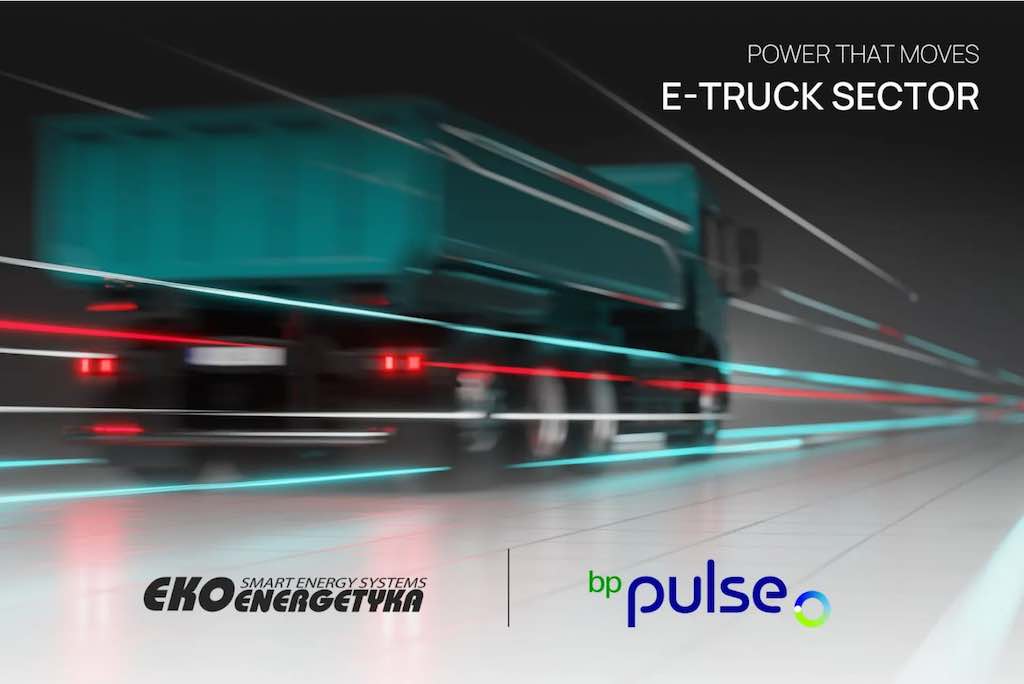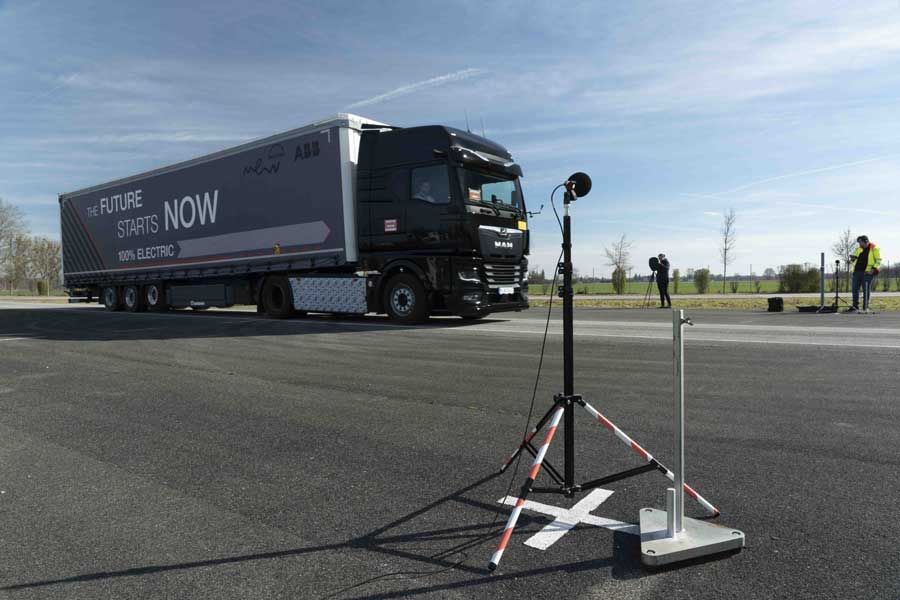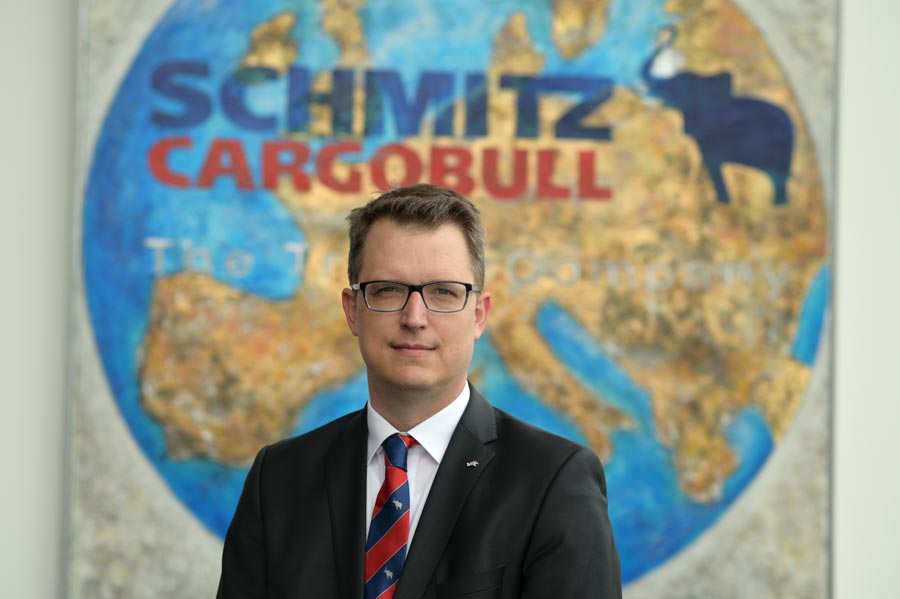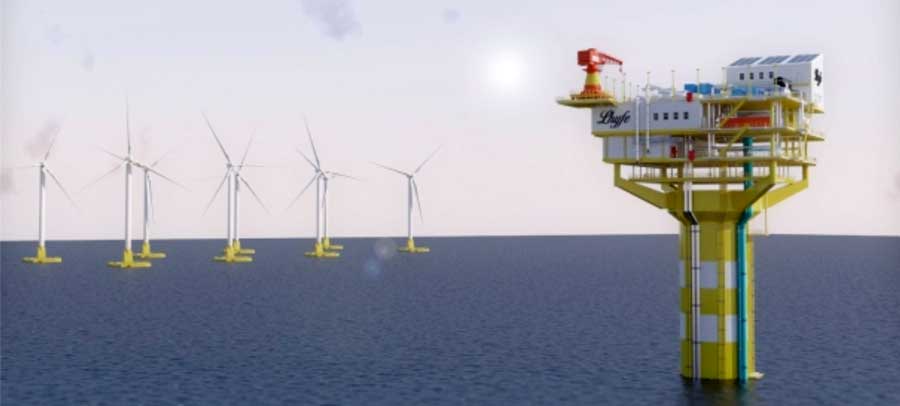bp pulse and Ekoenergetyka are joining forces to address one of the most critical challenges in electrifying heavy-duty vehicles: providing reliable, efficient overnight charging solutions for e-trucks. This collaboration aims to ensure seamless operations for fleet operators by meeting the growing demand for scalable charging infrastructure in the heavy-duty transport sector. Leveraging their combined expertise, the two companies are committed to supporting the transition to cleaner transportation while optimizing operations for logistics companies.
Electrifying heavy-duty transport is critical for reducing emissions and meeting the European Green Deal’s goals, as transport accounts for 25% of the EU’s greenhouse gasses. Transport contributes 5% to the EU’s GDP and employs over 6 million people, highlighting its economic importance. By 2030, the electric truck fleet in Europe is projected to reach nearly 3.5 million units under the Stated Policies Scenario (STEPS), or over 4 million under the Announced Pledges Scenario (APS). Electric truck sales are expected to grow from a negligible share today to over 9% in STEPS and 13% in APS by 2030, demonstrating the growing shift towards electrification.
The pressure to decarbonize is driving this growth, with EU regulations targeting a 15% CO₂ reduction by 2025 and 45% by 2030, compared to 2019-2020 levels. However, a major challenge is the lack of sufficient charging infrastructure. Currently, public fast-charging points for trucks are scarce. To support long-distance transport, the Alternative Fuels Infrastructure Regulation (AFIR) requires EU member states to install fast-charging points every 60 km along main corridors by 2030. BP and Ekoenergetyka’s collaboration aims to help address this gap, providing overnight charging infrastructure necessary for the future of electric heavy-duty vehicles.
Charging scenarios for e-trucks and required infrastructure
Electric trucks primarily charge in three scenarios, each needing specific infrastructure.
The first is destination charging at logistics centers during unloading or loading, where high-power bursts of 150-400kW are required for short idle times of 30 minutes to two hours. Liquid-cooled satellites, delivering a continuous 500 A and reaching 400 kW, are ideal here. The second is highway charging, aligned with regulatory rest breaks of 30-45 minutes at truck stops. To meet future demands, this scenario will need hub solutions providing over a megawatt of power (MCS), like the ones Ekoenergetyka presented at IAA Transportation 2024.
The third is overnight charging, the most common scenario, where trucks charge for 6-8 hours at depots or public stops with lower power, around 50-150kW. The challenge is to fit this infrastructure into existing parking areas while accommodating multiple trucks, ensuring ease of use, reliability, and weather resistance.
“Organizing overnight charging for large e-truck fleets, especially in public parking areas along the TEN-T network, is a significant challenge for the electrification of heavy-duty transport. While charging infrastructure is steadily growing, the current availability remains a challenge for some fleet operators. Together with bp pulse, we are committed to helping to address these gaps by providing efficient, high-power solutions,” said Maciej Wojeński, Co-founder and Member of the Supervisory Board of Ekoenergetyka-Polska S.A. “I am proud of this partnership and confident that together, we will deliver the solutions the market needs to support the transition to electric heavy-duty vehicles.”
Nigel Head, European EV Truck Director, bp pulse, said: “Collaborating with Ekoenergetyka on e-truck overnight charging solutions is another step forward in our plans to help meet the needs of UK and European HGV operators transitioning their fleets to EVs. Developing safe, reliable, space efficient and scalable overnight e-truck solutions will form an important cornerstone of bp’s future e-truck customer and network offer across Europe.“
Ekoenergetyka is one of the few providers capable of delivering large-scale charging solutions for e-trucks, thanks to its over 15 years of experience in developing overnight charging infrastructure for public transport electrification. A prime example of this expertise is their work with RATP, Paris’s historic public transport operator. As part of RATP’s efforts to electrify urban transport, Ekoenergetyka provides a network of 1,100 chargers across five locations, supporting Paris’s growing fleet of electric buses.
Ekoenergetyka’s solution ensures efficient, scalable charging that meets current needs and is ready for future fleet expansion. The infrastructure optimizes space by using a ceiling retractor system, allowing for automated overnight charging without impacting the city’s power grid. This expertise in managing large-scale overnight charging for electric buses directly translates to the needs of the e-truck sector, where efficient, space-saving, and reliable infrastructure is essential for fleet operators.
Ekoenergetyka‘s expansion is supported by the private equity fund Enterprise Investors, which acquired a significant minority stake last year and announced plans to invest over €45 million in e-mobility projects.
The company provides round-the-clock monitoring and repair services for its charging stations from its headquarters in Zielona Góra. Ekoenergetyka’s advanced systems allow it to address nearly 60% of reported issues remotely.










